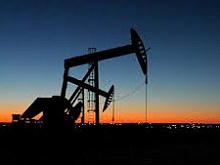Russian Billionaires Affected by Sanctions
Russia’s mining billionaires are starting to feel the sting of economic sanctions.
Mikhail Prokhorov, whose investment empire stretches from the world’s largest aluminum maker to the Brooklyn Nets basketball team, recently explored whether fellow oligarchs, including Vladimir Potanin, were willing to buy a portion of his $2.7 billion stake in potash miner OAO Uralkali, two people familiar with the matter said. The reason: the sinking value of his Russian holdings means he’d like less debt and more cash, they said.
While Prokhorov aborted the plan after failing to get the price he wanted, it’s the latest example of the pressure on Russia’s commodity magnates as sanctions hit the economy at home and a global slowdown undercuts metals demand. Billionaires including Alexey Mordashov, who controls steelmaker OAO Severstal (SVST), and Potanin, the biggest shareholder in OAO Norilsk Nickel, have increased dividends from their businesses after selling some assets.
“Whenever you hear billionaires say they are not affected by sanctions and the general situation in Russia, that’s not quite true,” said Yulia Bushueva, who helps to manage about $500 million at Arbat Capital in Moscow. “It’s natural that they are looking at options to cut the debt. Others just want to get some extra cash in the current situation.”
Economy Slows
The prospect of a slowing Chinese economy, where decades of double-digit economic growth has driven commodities demand, is another reason they’re feeling cautious, she said.
The Russian economy is teetering on the brink of recession as sanctions over the Ukraine crisis spur capital outflows and a domestic dollar shortage.
The net worth of Russia’s seven richest mining and metals magnates has dropped to $80.8 billion from $94.2 billion at the start of the year, Bloomberg Billionaires Index data show.
Uralkali’s market value declined about 56 percent since November last year, when Prokhorov’s companies agreed to buy about 28 percent in the potash maker, using debt. The company’s shares rose 2.6 percent to 141.1 rubles at 3:12 p.m. in Moscow.
Prokhorov’s Onexim Group and press representatives for Severstal and Potanin’s holding company Interros declined to comment.
Uralkali, which produces the fertilizer potash from mines in Russia, said on Oct. 23 it will pay about 8 billion rubles ($190 million) in dividends -- more than in 2013 even though net income fell.
Cutting Debt
Mordashov’s Severstal said this month it will pay $1.13 billion in interim dividends after it sold U.S. assets for $2.33 billion. Mordashov plans to use the dividend he’ll receive from his 79 percent holding to cut debt related to other businesses, he said in July.
The rest of the proceeds from the U.S. assets sale will be used to cut the company’s debt, which will allow Severstal to implement a new dividend policy of paying half of its profits to investors.
Norilsk’s board is scheduled to approve $2.78 billion of interim dividends, almost triple the amount expected. Potanin, the chief executive officer and owner of about 30 percent of Norilsk, said last week the company may distribute any cash exceeding $1 billion from its balance sheet to shareholders.
Capital Controls
He was one of the businessmen with whom Prokhorov talked unofficially over the Uralkali deal and who rejected the idea of a purchase, the people said.
The dividend from Norilsk will help billionaire Oleg Deripaska’s United Co. Rusal, which has $10 billion of debt and owns about 28 percent of the nickel company. Potanin himself may also use some of the proceeds to cut personal borrowings, Deutsche Bank AG analyst George Buzhenitsa said.
The risks of Russia imposing capital controls, preventing free conversion of currencies and the arrest of AFK Sistema (SSA) owner Vladimir Evtushenkov may also encourage other businessmen to distribute more profits and cut debts when possible, Bushueva said.
27 October 2014, Bloomberg
Read more
 Report
Banking Sector Report - February 2018
Mikhail Zavaraev
Report
Banking Sector Report - February 2018
Mikhail Zavaraev
US banks were sold off in February after they had demonstrated the most impressive start of the year since 2010. In February US banks decreased by 2.3% MoM vs -3.9% of SPX index. But banks added +5.6% YTD significantly outperforming S&P 500 which increased only by +1.5% YTD. Banks were outperforming SPX index for the past 4 months in a row.
15 March 2018, Arbat Capital
 Report
Banking Sector Report - December 2017
Mikhail Zavaraev
Report
Banking Sector Report - December 2017
Mikhail Zavaraev
In December US Banks (BKX index) increased by 2.0% MoM vs +1.0% MoM of S&P 500 index after slight outperformance in November. Despite strong growth of banks quotes in the last four months (+14.8% in absolute terms) SPX index outperformed it during 2017: +19.4% vs +16.3% of BKX index. Absolute December performance on MoM basis was just +0.2 StD from the mean monthly performance and this result is in the top 44% of absolute monthly performance of BKX Index. Dynamics of the sector was mainly driven by approval of the tax reform, so the most impressive growth was shown by consumer finance companies which had the highest effective tax rate among US Finance sector.
18 January 2018, Arbat Capital
 Report
Oil Market Report - December 2017
Vitaly Gromadin
Report
Oil Market Report - December 2017
Vitaly Gromadin
Crude oil price has ended the year on a very high note. WTI and Brent benchmarks have got to 2015 maximum levels ($62.5 for WTI and almost $70 for Brent). Technically it looks supported by breaking through key resistance. Brent surpassed its resistance earlier than WTI in September instead of November due to hurricane season effect.
18 January 2018, Arbat Capital

